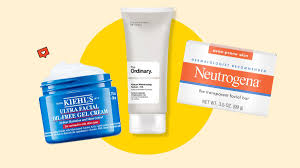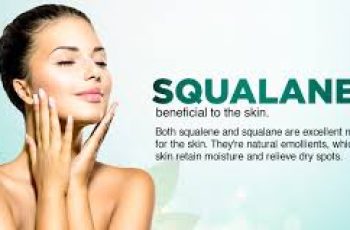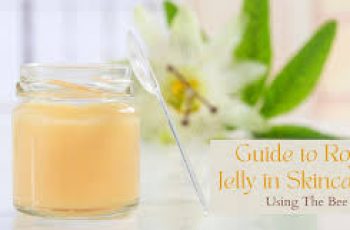
What Is Glycerin and What Are Its Skincare Benefits?
Glycerin is a popular skincare ingredient that you might have heard of but not fully understood. It’s a powerful moisturizer used in many skincare products.
Let’s explore what glycerin is and why it’s so good for your skin.
What Exactly Is Glycerin?
Glycerin, also called glycerol, is a natural substance found in healthy skin. It can be made from plants, animals, or synthetically in labs.
This versatility makes glycerin easy to include in creams, lotions, serums, and cleansers.
It is known as a humectant, which means it pulls moisture from the air and locks it into your skin. This property helps keep skin hydrated throughout the day and night.
Why Is Glycerin Important for Skin Hydration?
Our skin naturally produces something called Natural Moisturizing Factors (NMF). These are substances that help skin hold onto water and stay soft. Glycerin acts like these NMFs by mimicking their function.
As we age, our skin loses some of its natural moisture, which leads to dryness and dullness. Glycerin helps replenish this moisture and nourishes the skin, keeping it healthy and glowing.
Key Benefits of Glycerin in Skincare
Intense Hydration: Glycerin attracts moisture from the air and locks it into the skin, making it feel soft and supple.
Works Well with Other Ingredients: It pairs perfectly with oils and emollients, boosting skin softness.
Strengthens Skin Barrier: Glycerin helps rebuild the skin’s natural barrier, which protects against irritants.
Protects from Environmental Damage: It shields skin from pollution, UV rays, and other harmful factors.
Improves Skin Texture: Regular use reduces roughness and helps smooth fine lines and wrinkles.
Enhances Product Absorption: Hydrated skin absorbs serums and creams better, improving their effectiveness.
Who Can Use Glycerin?
One of the best things about glycerin is that it’s suitable for all skin types. Whether your skin is dry, oily, sensitive, or combination, glycerin can help maintain moisture balance.
It is especially helpful during seasonal changes. When the air gets colder and drier, glycerin ensures your skin doesn’t lose too much moisture.
How Is Glycerin Used in Skincare Products?
Glycerin is often combined with other moisturizing agents in creams, lotions, and serums. Because it’s so effective at holding water, it’s considered one of the best humectants by skincare experts.
Other common humectants include:
Alpha Hydroxy Acids (like glycolic and lactic acid)
Propylene glycol and butylene glycol
Hyaluronic acid
Sorbitol
Urea
Among these, glycerin stands out because it is gentle, affordable, and powerful.
Does Glycerin Help With Anti-Aging?
Glycerin isn’t an anti-aging ingredient by itself. However, it plays a big role in preventing and reducing early signs of aging.
When your skin lacks moisture, fine lines and wrinkles become more visible. Glycerin’s ability to pull water into the skin plumps it up, making these lines less obvious.
It also helps protect skin from free radicals and damage caused by UV rays and pollution. These factors can weaken your skin’s protective barrier and speed up aging.
By restoring moisture and strengthening the barrier, glycerin keeps skin healthy, smooth, and youthful-looking.
Can I Use Glycerin Every Day?
Yes! Glycerin is gentle enough to use daily, even on sensitive skin. It helps skin stay hydrated by pulling moisture from the environment and deeper skin layers.
If you’re using pure glycerin, it’s best to apply a thick layer and leave it on for 15-20 minutes before rinsing. This prevents dryness from over-application.
Most skincare products have glycerin diluted properly, so you can safely leave them on overnight.
Are There Any Side Effects of Glycerin?
Glycerin is generally very safe, but like any ingredient, some people might have reactions.
Possible side effects include redness, itching, or rash. These usually happen if you’re allergic or have very sensitive skin.
To avoid this, always do a patch test before using a new product containing glycerin. Apply a small amount to your skin and wait 24 hours to check for any reaction.
If you notice irritation, stop using the product and try a formula with less glycerin or none at all.
Why Is Glycerin So Popular in Skincare?
Glycerin’s popularity continues to grow because it offers excellent hydration without being heavy or greasy.
It’s found in many products like moisturizers, cleansers, serums, and body lotions because it suits all skin types and helps skin look healthier.
By diminishing fine lines, smoothing texture, and strengthening the skin barrier, glycerin improves overall skin appearance.
How Does Glycerin Help Skin During Seasonal Changes?
When weather changes, especially in winter, skin often becomes dry and flaky. Glycerin helps by locking moisture in, keeping skin soft even when the air is dry.
This hydration boost prevents tightness and irritation caused by cold weather or indoor heating.
How to Choose the Right Glycerin Products
Look for products where glycerin is one of the main ingredients. This ensures you get its full hydrating benefits.
If you have dry skin, choose formulas that combine glycerin with oils or creams for extra nourishment.
For oily skin, lightweight gels or lotions with glycerin work well without clogging pores.
How to Use Glycerin Effectively in Your Routine
Apply glycerin-containing products to clean, damp skin to help lock in moisture.
Layer moisturizer over glycerin for best results.
Use it morning and night if your skin feels dry, but adjust based on your skin’s needs.
Avoid using too much pure glycerin alone as it may pull moisture out if the air is very dry.
Final Thoughts on Glycerin
Glycerin is a skincare powerhouse you might have overlooked. It deeply hydrates, protects, and improves skin texture.
Its gentle nature makes it perfect for everyday use across all skin types.
With glycerin in your moisturizer or serum, your skin will feel soft, smooth, and refreshed — ready to glow every day.


